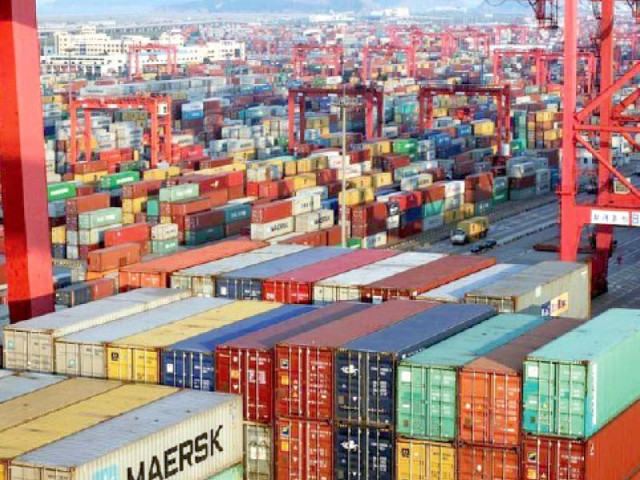FTA with Indonesia to enhance trade
Trade between Islamabad, Jakarta has doubled since PTA came into effect

There are bright prospects for a free trade agreement (FTA) between Pakistan and Indonesia, which can help strengthen economic and trade ties between the two countries, said Indonesia Ambassador Adam Mulawarman Tugio.
The existing preferential trade agreement (PTA) between the two nations opened up the possibility of increasing bilateral trade, Tugio told APP on Wednesday.
In the wake of the PTA, cooperation had increased in the industrial and agriculture sectors, he said, adding that in the PTA review held recently, Indonesia reduced tariffs on 20 items to facilitate Pakistan.
“Trade between the two countries has doubled since the PTA came into effect while Indonesia’s exports have also registered an increase,” he said. “Talks are underway to reduce the trade gap.”
The strengthening of economic and trade ties between Pakistan and Indonesia was being negotiated under the Asean Trade in Goods Agreement (ATIGA), he revealed.
Highlighting that Indonesia had a huge role to play, he said that efforts were underway to enhance economic and trade integration between Pakistan and the Association of Southeast Asian Nations (Asean).
He hoped that ATIGA would be finalised next year. “ATIGA is a result of almost two decades of trade integration efforts among Asean member states, which started with the signing of the Asean Free Trade Area (AFTA) in 1993,” he said.
He elaborated that ATIGA was the forerunner to the Asean Plus 1 FTAs, including the recently signed Regional Comprehensive Economic Partnership.
Tugio stressed that Asean was a strong trade bloc and vowed that in future it would strive to establish trade and economic ties with the entire world.
He lamented that while Pakistan and Asean had a combined market of 870 million people, the trade between the two sides stood at only $7.5 billion, which was below the actual potential.
He stated that Pakistan could take advantage of the $3 trillion trade market of Asean, for which a comprehensive plan was needed.
“Pakistan has an important geographical location that can connect Central Asian countries with the world on the one hand and with western China on the other hand. However, Gwadar Port is of utmost importance to achieve this,” the envoy said.
The ambassador pointed out that Asean member countries had FTAs with China, Japan and South Korea.
He said that Asean members enjoyed annual trade of $600 billion with China, $200 billion with Japan, $150 billion with South Korea and $300 billion with the United States, which lifted the annual trade volume of the bloc to $1.25 trillion.
“Asia-Pacific is a major trading partner of Asean and it is a global trade bloc with $482 billion worth of annual trade opportunities.”
He added that Asean countries and Pakistan could take advantage of each other’s FTA partners and the EU Generalised Scheme of Preferences (GSP Plus) status as a third party to enhance economic cooperation.
According to him, Gwadar Port will play an important role in the economic and trade integration in future.
“Pakistan can become a trade hub of the world,” he said. “Indonesia is an important trading partner of Pakistan in Asean and the two countries are linked by historical, religious cultural and economic ties.”
He said religious tourism could be promoted in Pakistan and Asean, which could also enhance economic cooperation between the two sides.
Responding to a question, he said Indonesia was keenly interested in investing in Pakistan.
Published in The Express Tribune, November 18th, 2021.
Like Business on Facebook, follow @TribuneBiz on Twitter to stay informed and join in the conversation.



















COMMENTS
Comments are moderated and generally will be posted if they are on-topic and not abusive.
For more information, please see our Comments FAQ